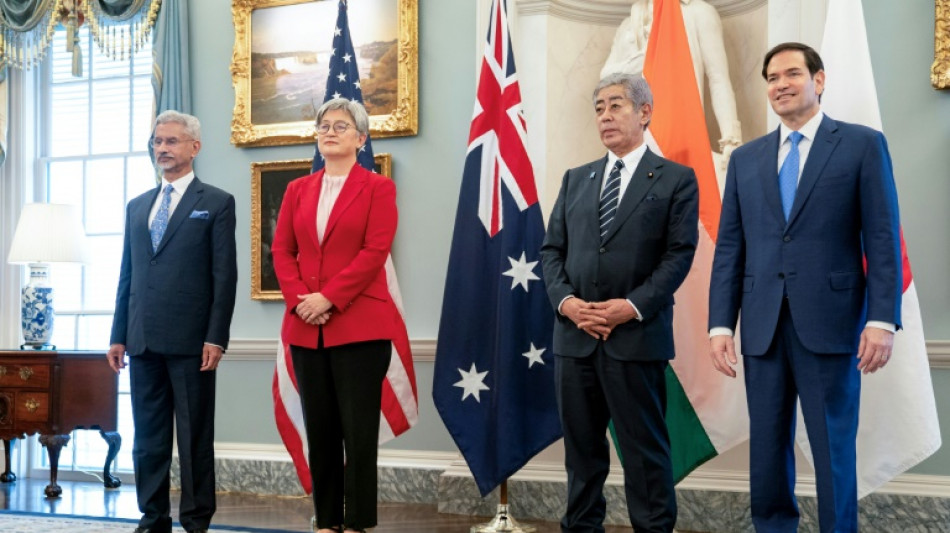
-
 Arsenal could hijack Spurs' bid for Palace star Eze - reports
Arsenal could hijack Spurs' bid for Palace star Eze - reports
-
Namibian Shalulile equals South African scoring record

-
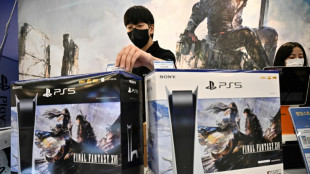 PlayStation prices rise as US tariffs bite
PlayStation prices rise as US tariffs bite
-
Games publisher kepler on cloud nine after smash hits

-
 Thirteen arrested over murders of Mexico City officials
Thirteen arrested over murders of Mexico City officials
-
Seville storms past Lyles for Lausanne 100m win
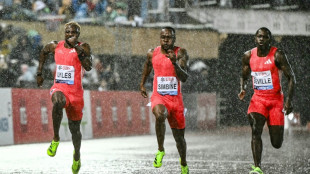
-
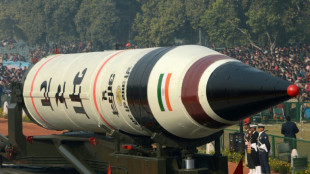 India test-fires nuclear-capable ballistic missile
India test-fires nuclear-capable ballistic missile
-
Google unveils latest Pixel phones packed with AI

-
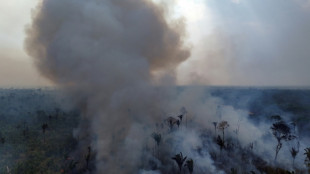 Brazil records 65 percent drop in Amazon area burned by fire
Brazil records 65 percent drop in Amazon area burned by fire
-
Threat from massive western Canada wildfire eases

-
 England women's rugby coach Mitchell says World Cup favourites' tag 'irrelevant'
England women's rugby coach Mitchell says World Cup favourites' tag 'irrelevant'
-
US ramps up attack on international court over Israel

-
 Palace transfer targets Eze and Guehi to start in European tie
Palace transfer targets Eze and Guehi to start in European tie
-
North Carolina coasts prepare for flooding as Erin churns offshore

-
 India test-fires ballistic missile ahead of US tariff hike
India test-fires ballistic missile ahead of US tariff hike
-
Antarctic climate shifts threaten 'catastrophic' impacts globally

-
 Tall ships sail into Amsterdam for giant maritime festival
Tall ships sail into Amsterdam for giant maritime festival
-
Trump raises pressure on central bank, calls for Fed governor to resign

-
 Woods to head PGA Tour committee to overhaul golf
Woods to head PGA Tour committee to overhaul golf
-
Google packs new Pixel phones with AI

-
 How Europe tried to speak Trump
How Europe tried to speak Trump
-
Stock markets diverge awaiting Fed signals as tech sell-off deepens

-
 Ombudsman gives Gosden another International, Derby hero Lambourn loses
Ombudsman gives Gosden another International, Derby hero Lambourn loses
-
Eurovision returns to Vienna, 11 years after Conchita Wurst triumph

-
 England expects at Women's Rugby World Cup as hosts name strong side for opener
England expects at Women's Rugby World Cup as hosts name strong side for opener
-
Marseille's Rabiot, Rowe up for sale after 'extremely violent' bust-up: club president

-
 Shearer accuses Isak of pouring 'flames on fire' of Newcastle row
Shearer accuses Isak of pouring 'flames on fire' of Newcastle row
-
French champagne harvest begins with 'promising' outlook

-
 England unchanged for Women's Rugby World Cup opener against the USA
England unchanged for Women's Rugby World Cup opener against the USA
-
Stock markets diverge as traders eye US rate signals

-
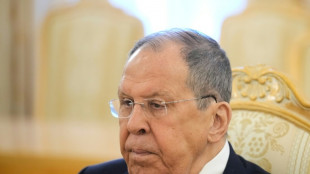 Russia says must be part of Ukraine security guarantees talks
Russia says must be part of Ukraine security guarantees talks
-
Historic Swedish church arrives at new home after two-day journey

-
 Winds complicate wildfire battle in Spain
Winds complicate wildfire battle in Spain
-
Nestle unveils method to boost cocoa yields as climate change hits

-
 UK set for more legal challenges over migrant hotels
UK set for more legal challenges over migrant hotels
-
Russia says discussing Ukraine security guarantees without Moscow 'road to nowhere'
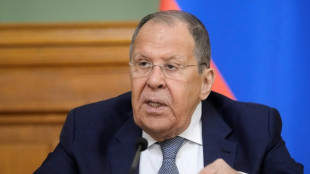
-
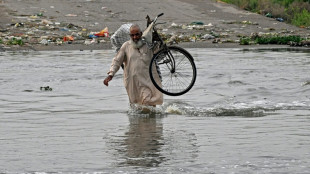 Torrential Pakistan monsoon rains kill more than 20
Torrential Pakistan monsoon rains kill more than 20
-
Record number of mosquito-borne disease outbreaks in Europe: health agency
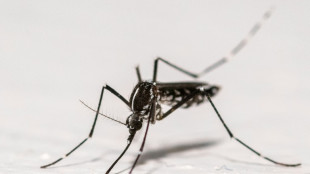
-
 Stock markets diverge after Wall Street tech sell-off
Stock markets diverge after Wall Street tech sell-off
-
Chinese troops swelter through rehearsal for major military parade
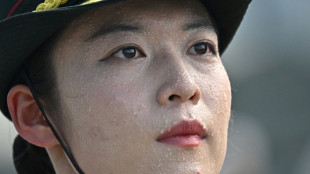
-
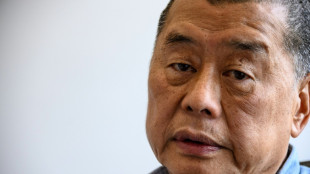 Defence begins closing arguments in Hong Kong trial of Jimmy Lai
Defence begins closing arguments in Hong Kong trial of Jimmy Lai
-
World champions Springboks to play Japan at Wembley

-
 Kneecap rapper in court on terrorism charge over Hezbollah flag
Kneecap rapper in court on terrorism charge over Hezbollah flag
-
Israel approves plan to conquer Gaza City, calls up reservists

-
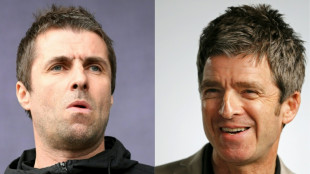 Oasis star Noel Gallagher piles praise on 'amazing' brother Liam
Oasis star Noel Gallagher piles praise on 'amazing' brother Liam
-
German minister says China's 'assertiveness' threatens European interests
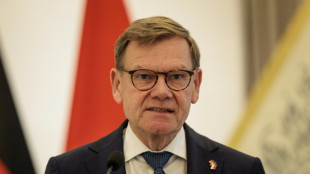
-
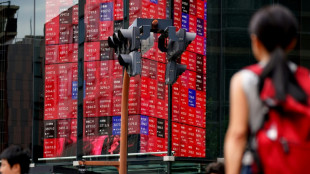 Markets waver as Japan exports show tariff strain
Markets waver as Japan exports show tariff strain
-
Afghanistan bus crash death toll rises to 78
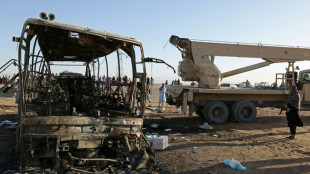
-
 Historic Swedish church inches closer to new home
Historic Swedish church inches closer to new home
-
Asian markets waver as Japan exports show tariff strain
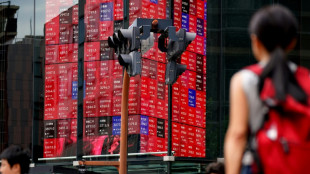

US, Japan, India, Australia pledge mineral cooperation on China jitters
The United States, Japan, India and Australia pledged Tuesday to work together to ensure a stable supply of critical minerals, as worries grow over China's dominance in resources vital to new technologies.
US Secretary of State Marco Rubio welcomed his counterparts from the so-called "Quad" to Washington in a shift of focus to Asia, after spending much of his first six months on the wars in Ukraine and the Middle East and on President Donald Trump's domestic priorities such as migration.
The four countries said in a joint statement that they were establishing the Quad Critical Minerals Initiative, aimed at "collaborating on securing and diversifying" supply chains.
They offered little detail but made clear the goal was to reduce reliance on China, which has used restrictions as leverage as the United States in turn curbs its access to semiconductors and as Trump threatens steep tariffs -- including on Quad countries.
"Reliance on any one country for processing and refining critical minerals and derivative goods production exposes our industries to economic coercion, price manipulation and supply chain disruptions," the statement said.
The ministers were careful not to mention China by name but voiced "serious concerns regarding dangerous and provocative actions" in the South China Sea and East China Sea that "threaten peace and stability in the region."
China holds major reserves of several key minerals including the vast majority of the world's graphite, which is crucial for electric vehicles.
In brief remarks alongside the other ministers, Rubio said he has "personally been very focused" on diversifying supply chains and wanted "real progress."
- US refocus on Asia -
The four-way partnership was first conceived by late Japanese prime minister Shinzo Abe, who saw an alliance of democracies surrounding China -- which has repeatedly alleged that the Quad is a way to contain it.
Rubio had welcomed the Quad foreign ministers on January 21 in his first meeting after Trump's inauguration, seen as a sign the new administration would prioritize engagement with like-minded countries to counter China.
But to the surprise of many, China has not topped the early agenda of Trump, who has spoken respectfully about his counterpart Xi Jinping and reached a truce with Beijing to avoid a wider trade war between the world's two largest economies.
Trump is expected to travel to India later this year for a Quad summit.
Both the Indian and Japanese foreign ministers said that they wanted the Quad to focus on a "free and open Indo-Pacific" -- a phrasing that is a veiled allusion to opposing Chinese dominance in Asia.
"It is essential that nations of the Indo-Pacific have the freedom of choice, so essential to make right decisions on development and security," Indian Foreign Minister Subrahmanyam Jaishankar said.
At Jaishankar's urging, the Quad condemned a May attack on the Indian side of Kashmir that killed mostly Hindu civilians and called for "the perpetrators, organizers and financiers of this reprehensible act to be brought to justice without any delay."
India in May launched air strikes in Pakistan, which it blamed for the attack. Pakistan denied responsibility and responded with its own attacks on the Indian military.
In a key concern for Japan, the Quad condemned North Korea for its "destabilizing launches" of missiles and insisted on its "complete denuclearization."
Trump, in one of the most startling moves of his first term, met with North Korea's reclusive leader Kim Jong Un, helping ease tensions but producing no lasting agreement.
Despite common ground on China, Quad members have differed on other hotspots, with the joint statement not mentioning Ukraine or Iran.
India has maintained its long relationship with Russia despite the invasion of Ukraine, while both India and Japan also have historically enjoyed cordial ties with Iran.
N.AbuHussein--SF-PST
